These are the extremist student leaders of the anti-Israel protest camp bringing Columbia to its knees

The anti-Israel tent encampment at Columbia University is being led by a cohort of controversial student leaders — some of whom express solidarity with Hamas and say “Zionists don’t deserve to live.”
These students are the ones negotiating directly with leaders of the Ivy League university — holding campus hostage with dozens of tents and hundreds of protesters splayed out on the lawn in Morningside Heights.
Khymani James, 20, is one of the most prominent voices behind Columbia United Apartheid Divest, which is demanding that the university divest from any company that does business with the Israeli military — including a wide swath of the Fortune 500.
James was banned from campus on Friday in response to a resurfaced video that showed them saying that “Zionists don’t deserve to live.”
James issued a half-hearted apology, but placed the onus of the controversy on “far-right agitators.”
Columbia did not make it clear whether barring James from the campus meant he was suspended or permanently expelled.
Before attending the Ivy League university, James made headlines in their native Boston as a student representative for the Boston School Committee.
“The ultimate destination is Congress,” James told the Bay State Banner in 2021, noting that they also hoped to work with far-left “Squad” darling Alexandria Ocasio-Cortez (D-NY).
They resigned from the committee over supposed “adultist” policies in March 2021 – and was later filmed saying “I, too, hate white people” while discussing two former members accused of discrimination, according to the Boston Globe.
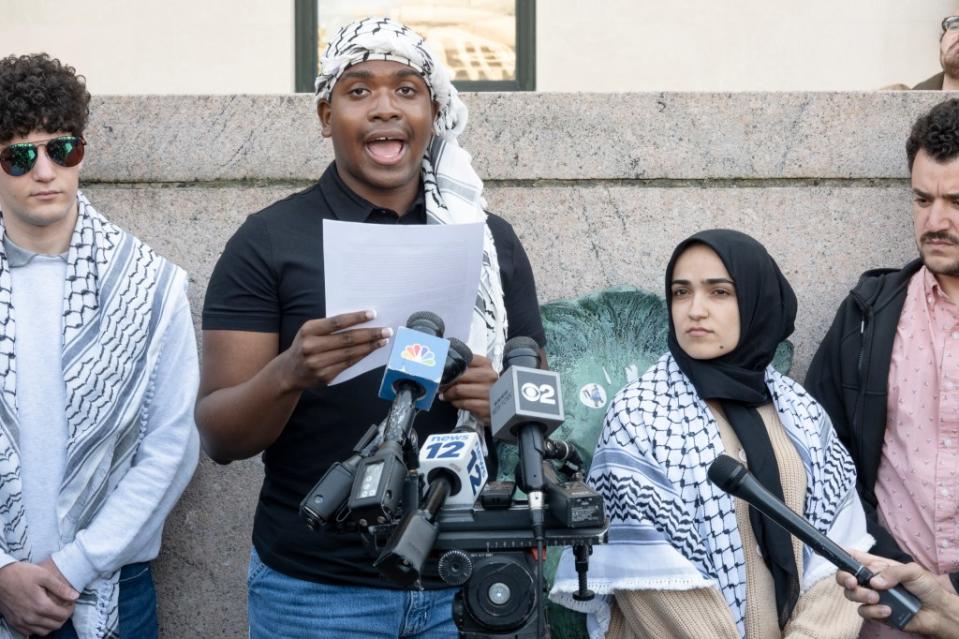
When “Squad” member Rep. Ilhan Omar (D-MN) visited campus on Thursday — with her daughter, suspended Barnard College student Isra Hirsi, in tow — she was spotted shaking hands with James.
As a result of the protests — and complaints that Jewish students no longer feel safe going to class while paying $90,000 per year — the university announced that students would be allowed to attend online for the rest of the year.
The students also forced university officials to wave the white flag on trying to break up the camp. Late Thursday, they dropped a deadline they had attempted to enforce that demanded the protesters leave by Friday morning.
The leaders later crowed that they were winning: “We are not actually negotiating on the state of the encampment as of now,” Palestinian graduate student Mahmoud Khalil, one of the protesters’ lead negotiators, told The Post Friday afternoon.
Instead, the negotiations were starting with Columbia addressing their divestment demands, they said.
The protest continued apace on Saturday, with dozens of students milling around the camp — which was stocked with snacks including a “nut station” and famine hygiene products.
One protester boasted that she had been suspended, but was still on campus — despite the university only letting people with active school IDs beyond the gates.
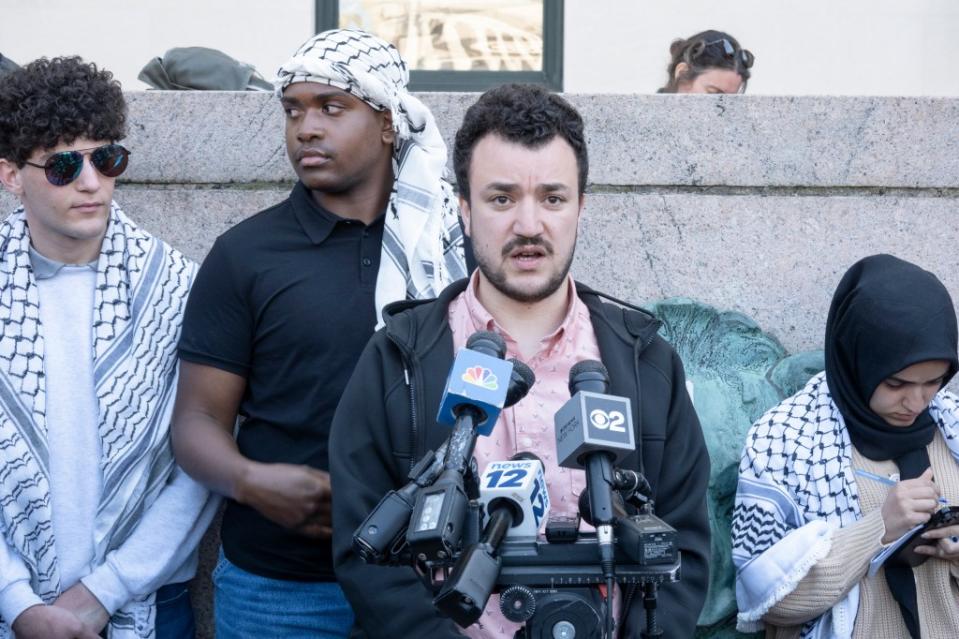
Khalil — who did his undergraduate degree in Beirut — told the Columbia Daily Spectator that he has not participated in any of the protests over the past week and a half because he is worried about losing his student visa that allows him to remain in the US.
Khalil was a political affairs officer with UNRWA — the United Nations’ agency that supports Palestinian refugees — from June through November 2023, according to LinkedIn.
UNRWA lost hundreds of millions of dollars in funding earlier this year when an Israeli dossier suggested that agency workers were linked to the Oct. 7 terror attack.
Earlier this week, an Independent Review Group announced that a nine-week probe found a lack of serious evidence that the group had legitimate connections with Hamas.
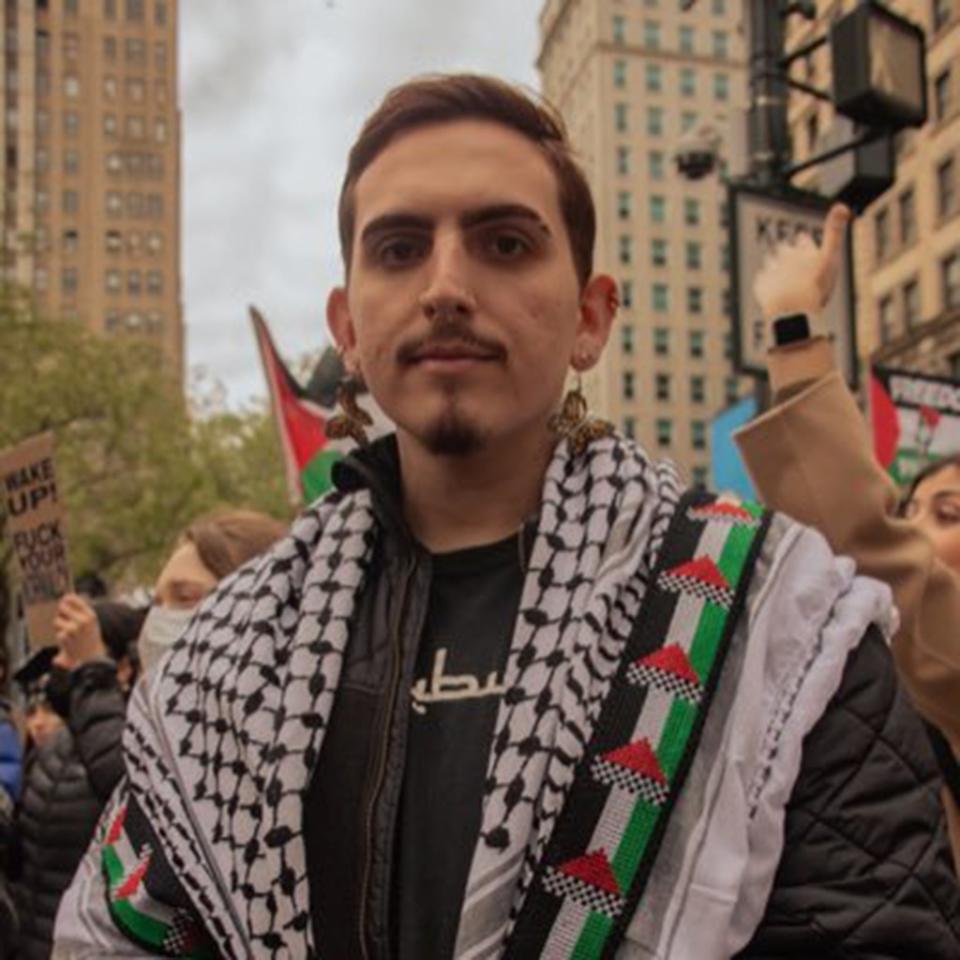
The Columbia Apartheid Divest group and its leaders were disciplined for extremist statements even before the tent camp went up. In March, organizers hosted an event titled “Resistance 101,” during which one of the speakers insisted that “there is nothing wrong with being a fighter in Hamas.”
Three students were suspended for the event — including 27-year-old postgrad Aidan Parisi and Maryam Alwan, a 21-year-old senior.
Even though they are technically barred from campus, Parisi has since shared multiple social media updates from the encampment as well as hateful, anti-Israel messages.
“Que viva la intifada,” Parisi wrote in an Instagram post addressing their original suspension — “long live the rebellion.”
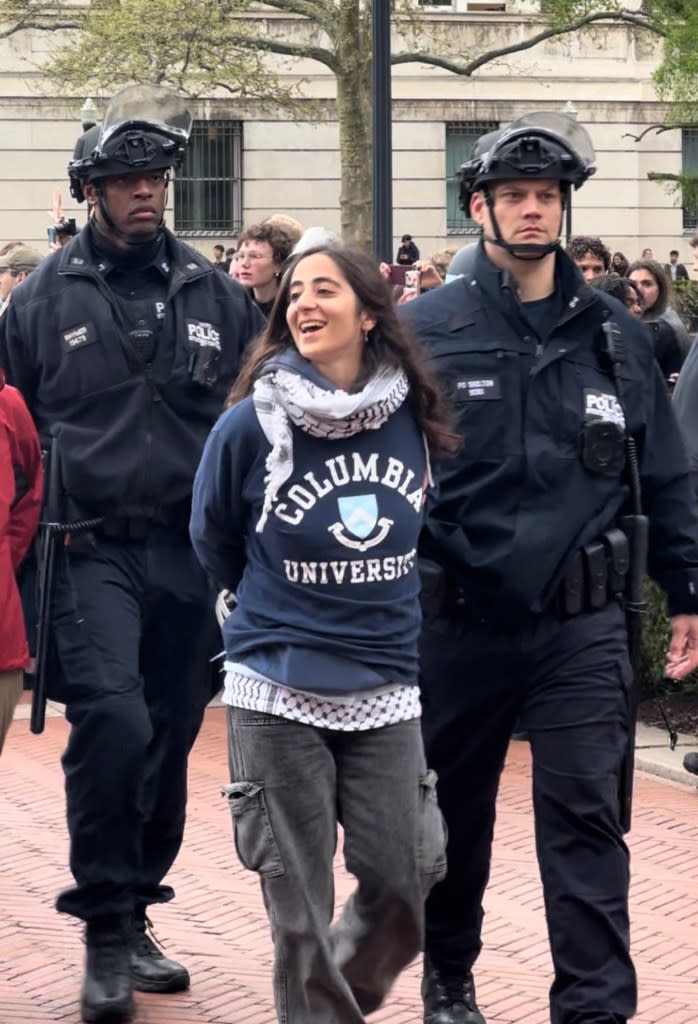
“Good night. F–k israel,” Parisi wrote on X last week.
Alwan, who is an organizer with Students for Justice in Palestine, proudly shared a photograph of herself being arrested by the NYPD during the mass arrest last week.
“@Columbia University may have devolved into a fascist police state, but it cannot arrest our joy,” Alwan captioned the post.
She was issued a summons, according to police sources.
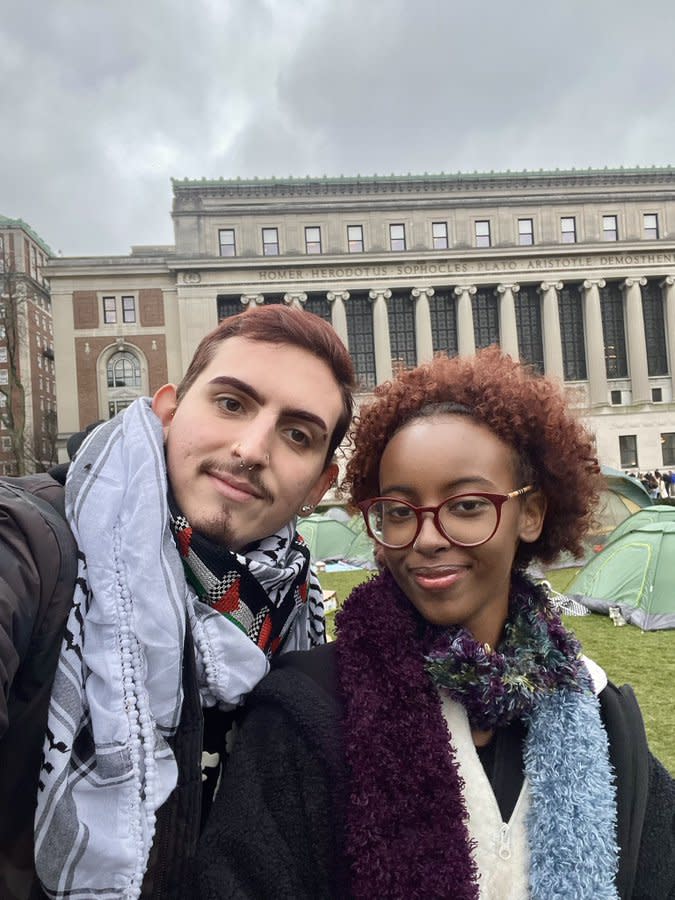
Alwan, who was presumably suspended for refusing to leave the first tent camp, also shared a grinning photo with Hirsi when Omar’s daughter returned to campus.
Hirsi was one of at least three Barnard students suspended last week for participating in the tent protest.
Another Barnard student and SJP member, Maryam Iqbal, has an inverted red triangle — a symbol associated with support for Hamas and the assassination of Israeli soldiers — in her X bio.
“Victory to the intifada,” her bio read.
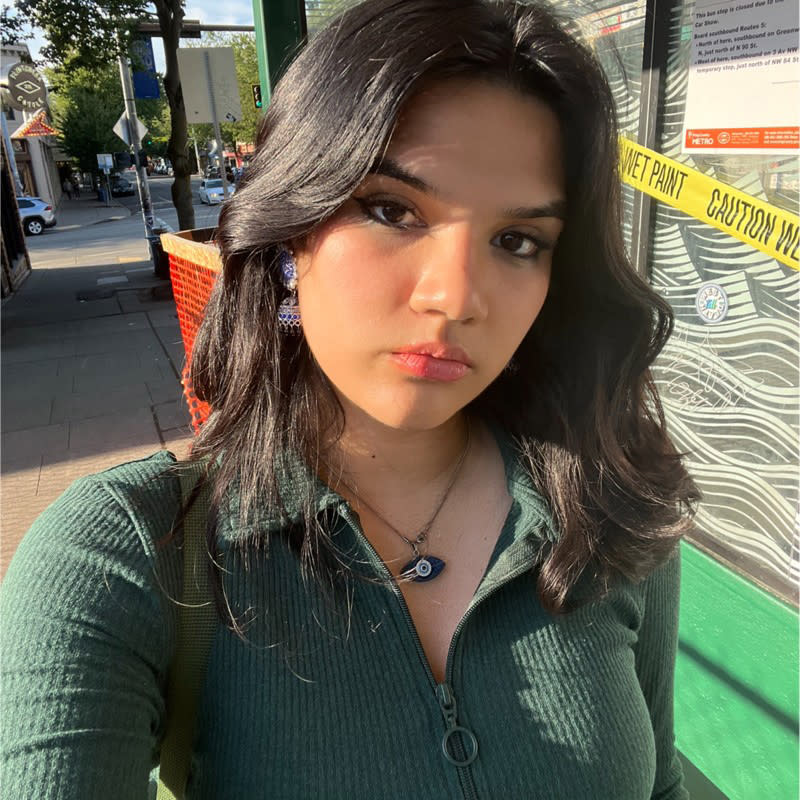
She also recently reposted a message comparing a Jewish woman in the UK to “white slave owners” because she expressed concern about her safety.
She also reshared an X post that belittled the “’American left’” for continuing to “whine about how [the Houthis] and revolutionary groups supporting Palestinian national liberation are not ideologically ‘progressive.’”
Meanwhile, the tent camp continues with no end in sight — and little sign that Columbia officials are willing to once again call in the NYPD to remove the protesters from campus.
“The university understood that we cannot operate on timelines. We cannot operate under time pressure,” Khalil said.

 Yahoo News
Yahoo News 
